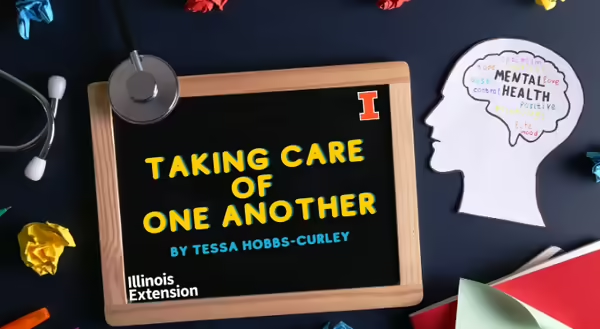
The conversation of taking care of one’s mental health has come up often over the past 11 months. Whether we’re experiencing a pandemic or trying to survive in the world, caring for one another makes a difference. This past month I had the opportunity to attend Mental Health First Aid Training to become a facilitator. This program was developed by Betty Kitchener and Anthony Jorm from Australia, and they gave the National Council for Behavioral Health permission to update the material. As a trainer, I encourage others to attend a Mental Health First Aid training, and I will explain why:
- Reflect on the reasons people take Cardiopulmonary Resuscitation (CPR) training. Just like CPR helps you assist an individual having a heart attack, Mental Health First Aid helps you assist someone experiencing a mental health or substance use-related crisis. The training teaches about recovery and resiliency and covers topics such as depression and mood disorders, anxiety disorders, trauma, psychosis, and substance use disorders.
- You don’t have to be a mental health expert, professional, or a substitute. When a person takes a course, he/she will learn how to apply the Mental Health First Aid action plan in a variety of situations. The training allows participants to practice through role-plays, scenarios, and activities, making it easier to apply later in a real-life situation.
- The course provides statistics and research information that will help debunk some common mental health misconceptions. For instance, did you know that depression affected more than 264 million people globally in 2017 alone? Since the pandemic, a US-study concluded that the number of adults experiencing depression has tripled.
Why should you take the course?
Mental Health First Aid gives four reasons to become a Mental Health First Aider:
- Be Prepared: When a mental health crisis happens, know what to do.
- You Can Help: People with mental illnesses often suffer along.
- Mental illnesses are common: 1 in 5 adults in any given year.
- Your Care: Be there for a friend, family member, or colleague.
Famous celebrities, such as Lady Gaga, see the need to get involved. Her Born This Way Foundation and the National Council for Behavioral Health announced that they would expand their work with teens. According to Gaga, “Sometimes when life gives you a million reasons to not want to stay, you need just one person that looks at you, helps you get help, and validates how you feel.”
Learn more about Mental Health First Aid and how to find courses to become a mental health First Aider.